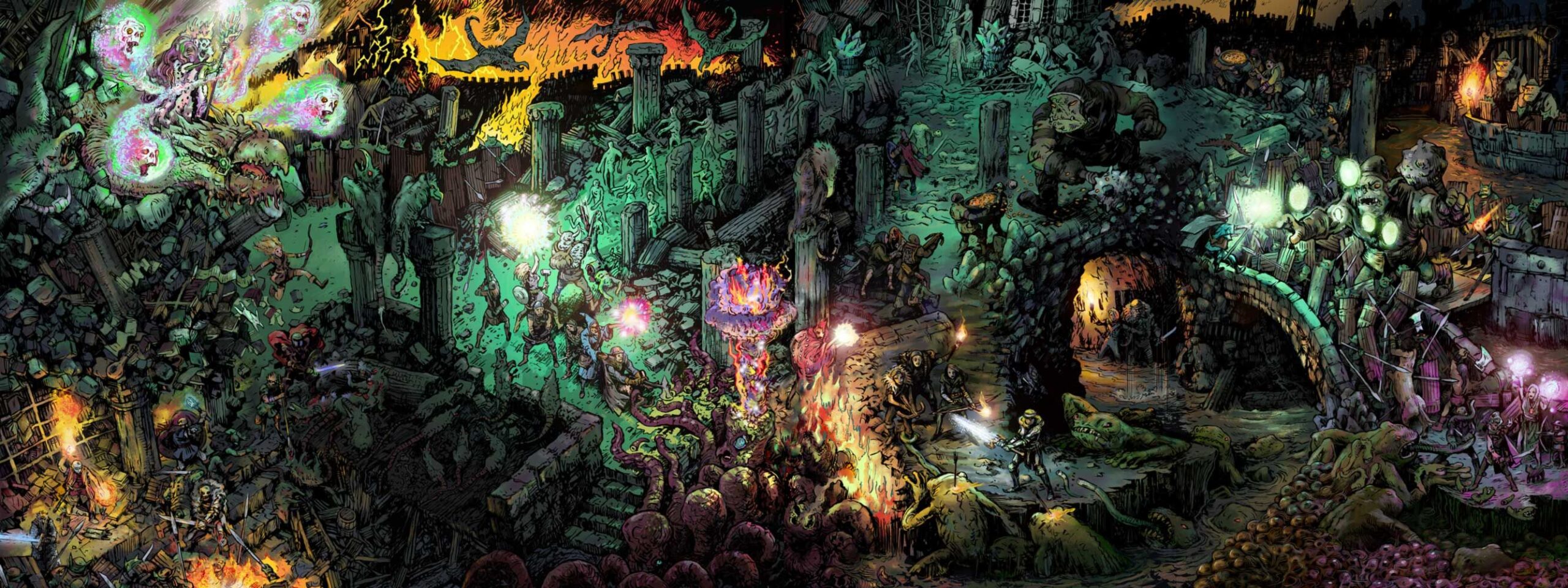Disclaimer: this is what I would call “Schreibdenken” in German, so writing something down as a means of thinking about stuff. Which also means: this is just thinking and writing out loud.
There was a little discussion in my post Make failures more interesting: degrees of success in ICRPG about to which kind of checks PbtA-inspired degrees of success should apply. Since I took the idea of degrees of success from something Connie Chang said in one episode of Adventuring Academy (probably behind a paywall, but Dropout is really cool and you should check it out if you can) I only wanted to apply the degrees of success to saving throws or other similar situations and not to checks in general. But then a post by @edensuko got me thinking: why not write “moves” tied to attributes that codify the outcome for checks and make them (a) more narratively interesting by supplying the GM and the player with a guideline and (b) enhance player autonomy by letting them decide the outcome.
“Noooooo, why!!!?”, I hear you scream. “What are you doing, man? You are reverse engineering to hack PbtA into your game, instead of simply playing Dungeon World. ICRPG is a combat-focused game and does not need narrative mechanics and codified moves. You can simply wing it at the table. You are doing the same thing, D&D players do, when they try to make investigative scenarios work in D&D instead of playing a different game.”
All I can say to that is: Probably true, but I want to think and write about it anyway. So here goes nothing.
Say you wanted to introduce narrative variety into failed checks, but you are not good at improvising and failing forward and all that stuff. You find the idea of moves from PbtA interesting but understand enough about probability that you know, that rolling a d20 and rolling 2d6 are really not the same. Say, you also don’t want to change any of the math, because you think it’s good as it is. Thinking and writing aloud, I might have an idea, so let’d dig in.
“Moves” in ICRPG (with their names sometimes blatantly stolen from DW)
Hack & Slash
When you make a melee attack, roll +STR
Success: You deal damage. Deal additional WEAPON damage by triggering an opportunity attack.
Failure: You deal damage but also trigger an opportunity attack.
Shoot some shit
When you make a ranged attack, roll +DEX
Success: You have clear shot and deal damage.
Failure: You deal damage and choose one:
- you have to move NEAR
- you do less damage (subtract GUN damage from your EFFORT roll)
- you have to shoot several times and take your next action to reload
Spout Lore (really like the podcast)
When you want to use or remember your knowledge about something, roll +INT
Success: The GM gives you useful facts about a situation.
Failure: You get interesting facts. Not really what you asked for but interesting nonetheless.
Discern Realities
When you want to closely study a person or a situation, roll +WIS
Success: Ask the GM 3 questions from the list below.
Failure: Ask only one question from the list below:
- What happened here recently?
- What is about to happen?
- What should I be on the lookout for?
- What here is useful or valuable to me?
- Who’s really in control here?
- What here is not what it appears to be?
Bargain
When you want to convince, intimidate or manipulate an NPC, roll +CHA
Success: The NPC does what you want.
Failure: The NPC does what you want, but needs some kind of reassurance.
Other possibilities to use the “move”-template in ICRPG
Write class specific moves that reinforce the narrative themes you want to see in your game or write feats that function the same way the above “moves” do by introducing different outcomes when the related rolls fail. I am not going to write them all out. Have a look at class moves in Dungeon World to see what I mean.
As you can see, I have not “written” (copy-pasted) a move that uses CON. Maybe you have an idea. Let me know. The more important thing is: what do you think? I think, ICRPG works perfectly fine without this half-baked hack. I’m still curious though what you think. Maybe I should really just play Dungeon World? 
Take care y’all. 

